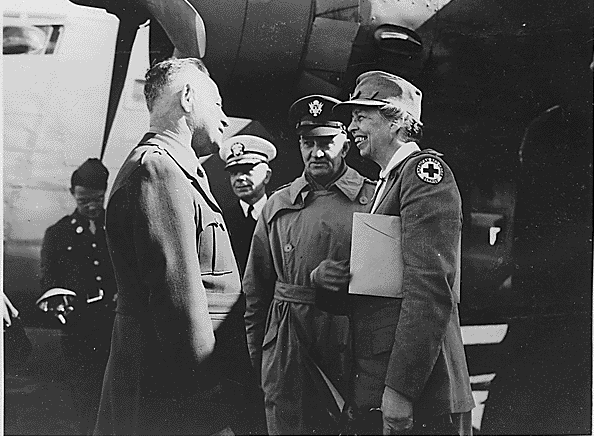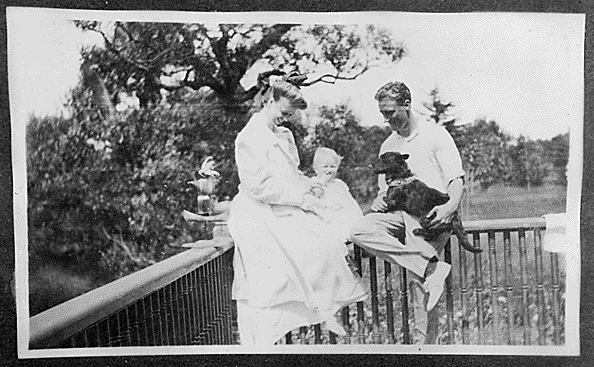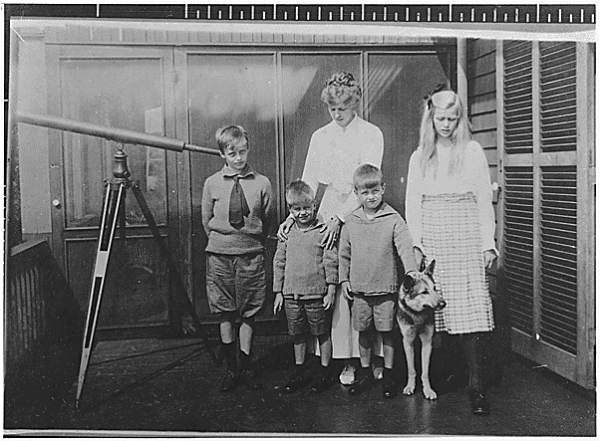Eleanor Roosevelt was one of the most admired people of the 20th century, and I’m sure you know the basics of her curriculum vitae: First lady of the United States for 12 years as FDR’s wife. Delegate to the UN General Assembly. Chairman of JFK’s Presidential Commission on the Status of Women.
Eleanor in Australia
Roosevelt accomplished great things in her life, but she was demure about those accomplishments. The Big Things she achieved just weren’t that important to her. What Roosevelt really wanted to be remembered for was the way she lived her life.
Roosevelt wasn’t always proud of the way she lived. She grew up in an unhappy home, and described her childhood as “one long battle against fear.” As the self-described ugly duckling in a family of pretty girls, she was painfully shy and self-conscious. Reading about her early life, it’s difficult to believe this is the same woman who said “Don’t be concerned about whether people are watching you or criticizing you. The chances are that they aren’t paying attention to you anyway.”
Roosevelt did overcome those early fears, motivated by her innate zest for life and spirit of adventure. Roosevelt believed life itself was a great adventure, and she strove to meet it head-on and experience all it had to offer. She was interested in everything, and she believed everyone had something to teach her. (Is it any wonder that she was famous for her knack of bringing out the best in everyone she encountered?) Roosevelt believed firmly that life was what you make of it, and that happiness was a state of mind, not a state of circumstances.
Eleanor and Franklin with their daughter Anna
Roosevelt’s life was filled with hardship, but she firmly believed that when people faced difficulty—or disaster— they could find the strength to do what they had to do. As Roosevelt famously said, “A woman is like a tea bag—you never know how strong she is until she gets in hot water.”
Eleanor wasn’t always in “hot water,” exactly, but she felt the pressure of being the President’s wife and a mother of five. She insisted that her husband and children come first, despite the many demands on her time, and she refused obligations that interfered with these relationships. Roosevelt believed that everyone—but especially women—needed to carefully consider what in life had the most value for them—and then pursue those things with all their hearts. To do otherwise would be to miss the whole point of living.
Eleanor and 4 of her children
We know Roosevelt for what she accomplished, but Roosevelt knew what she wanted out of life, and it wasn’t any of those things we tend to remember her for: “I know my satisfaction is not in politics, not in the interesting things I do. It is in being with people I am fond of and feeling that in some small way I can make life happier or more interesting for them, or help them to achieve their objective. To me that is much more important than anything else in my life.”
I turned to Eleanor Roosevelt to learn a little about my nation’s history, but I was surprised to find not a dusty woman of history, but an inspiring model of spunk and pluck. If you’re interested in learning more about Roosevelt, I highly recommend her autobiography You Learn by Living, which was first published in 1960, when she was 76 years old. It’s striking how fresh and true her insights seem today, over fifty years later.
If you want to know more:
Leadership The Eleanor Roosevelt Way
Franklin and Eleanor: An Extraordinary Marriage
Eleanor Roosevelt: Transformative First Lady
![]()
 Author of this biography, Anne Bogel is a starry-eyed dreamer who loves discussing big ideas over a good cup of coffee–especially if the topic is good books, womanhood, or the church (with a side of fashion and fun). You can find her blogging about all things feminine at Modern Mrs Darcy or about matters of faith and life at Anne With An E. She also tweets @ModernMrsDarcy.
Author of this biography, Anne Bogel is a starry-eyed dreamer who loves discussing big ideas over a good cup of coffee–especially if the topic is good books, womanhood, or the church (with a side of fashion and fun). You can find her blogging about all things feminine at Modern Mrs Darcy or about matters of faith and life at Anne With An E. She also tweets @ModernMrsDarcy.



